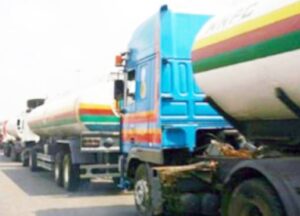Dangote Petrol: IPMAN and PETROAN Indicate Possible Reduction in Petrol Price
Dangote Petrol: IPMAN and PETROAN Indicate Possible Reduction in Petrol Price

The Petroleum Retail Outlet Owners Association of Nigeria (PETROAN), represented by Billy Gillis-Harry, informed FIRST CLASS GISTS that Dangote Refinery has yet to respond to their request for direct purchases of Premium Motor Spirit (PMS).
He emphasized that without a clear pricing template from the refinery, it would be impractical for marketers to acquire Dangote Petrol. “They have asked for a letter from us, but we haven’t received any updates since we submitted it. To this day, they haven’t disclosed their pricing. How can we send our trucks to the refinery without knowing how much the petrol will cost?” Gillis-Harry remarked, expressing a willingness to support Dangote Refinery.
However, the optimism among petrol marketers may be tempered by recent increases in fuel prices following the commencement of Dangote’s petrol distribution. Oil and gas expert Olabode Sowunmi commented that the Dangote Refinery has not begun domestic production of petrol at lower prices for consumers.
Fuel Price Surge Under Tinubu Administration
It’s noteworthy that the price of fuel surged to N1,030 on October 9, 2024, up from N238 in June of last year, coinciding with President Bola Ahmed Tinubu’s administration. Following the removal of fuel subsidies announced by Tinubu in June 2023, petrol prices escalated to over N600 per liter.
On September 16, 2024, the Nigerian National Petroleum Company Limited (NNPCL) implemented another price hike, with petrol now priced between N1,030 and N1,200 per liter.
Rising Costs of Energy and Utilities
In addition to petrol, other energy costs have soared. The price of Automotive Gas Oil (diesel) and Liquefied Petroleum Gas (LPG) saw significant increases in August 2024, with diesel rising to N1,406 per liter and the 12 kg LPG climbing to N15,552.56, compared to N854.32 and N9,194.41 a year earlier.
These rising energy costs, combined with soaring food prices and fluctuations in the Naira, have exacerbated economic challenges under Tinubu’s government. Earlier this year, the Nigerian Electricity Regulatory Commission approved a staggering 240% increase in electricity tariffs for certain customers, pushing rates from N66 to N209.5 per kilowatt-hour, despite Nigeria still struggling to provide sufficient electricity to its population of over 200 million.
Moreover, the national grid has experienced multiple collapses, further compounding the issues in the power sector. The Transmission Company of Nigeria (TCN) announced that system restoration efforts had begun following the latest collapse.
Tinubu Remains Optimistic
Despite these challenges, President Tinubu, represented by Vice President Kashim Shettima at the Nigerian Economic Summit Group (NESG) on Monday, expressed confidence in Nigeria’s ability to overcome its economic difficulties. “The challenges we face can be addressed with effective policies. I urge all Nigerians to believe that these obstacles are surmountable. Together, we can prevail,” he stated.
TRENDING SONGS
 NPMA Appeals to Nigerian Government for Compensation After Lagos Market Fire
NPMA Appeals to Nigerian Government for Compensation After Lagos Market Fire
 Rest Every Four Hours, FRSC Issues Safety Guide for Fasting Motorists
Rest Every Four Hours, FRSC Issues Safety Guide for Fasting Motorists
 NNPC Boss Ojulari Bags UK Energy Institute Fellowship
NNPC Boss Ojulari Bags UK Energy Institute Fellowship
 Shock in Anambra: Bride Disappears Moments Before Wedding
Shock in Anambra: Bride Disappears Moments Before Wedding
 Nigerian Woman Returns ₦330 Million Accidentally Credited to Her Account
Nigerian Woman Returns ₦330 Million Accidentally Credited to Her Account
 APC Don Reach Morocco?’ VeryDarkMan Reacts to Seyi Tinubu Poster
APC Don Reach Morocco?’ VeryDarkMan Reacts to Seyi Tinubu Poster
 Bride Breaks Down in Tears as Wedding Meals Were Kept Secretly While Guests Go Home Hungry
Bride Breaks Down in Tears as Wedding Meals Were Kept Secretly While Guests Go Home Hungry
 Odogwu by Day, Robber by Night: How Marriage Joy Turned Into Tragedy
Odogwu by Day, Robber by Night: How Marriage Joy Turned Into Tragedy
 Nigerian Officials Allegedly Pocket N4–6B Weekly Through Smuggling Cartels at Seme–Badagry Border
Nigerian Officials Allegedly Pocket N4–6B Weekly Through Smuggling Cartels at Seme–Badagry Border
 Ahmad Yerima: Naval Officer to Face No Sanctions After Clash with Wike – Matawalle
Ahmad Yerima: Naval Officer to Face No Sanctions After Clash with Wike – Matawalle
Share this post with your friends on ![]()













